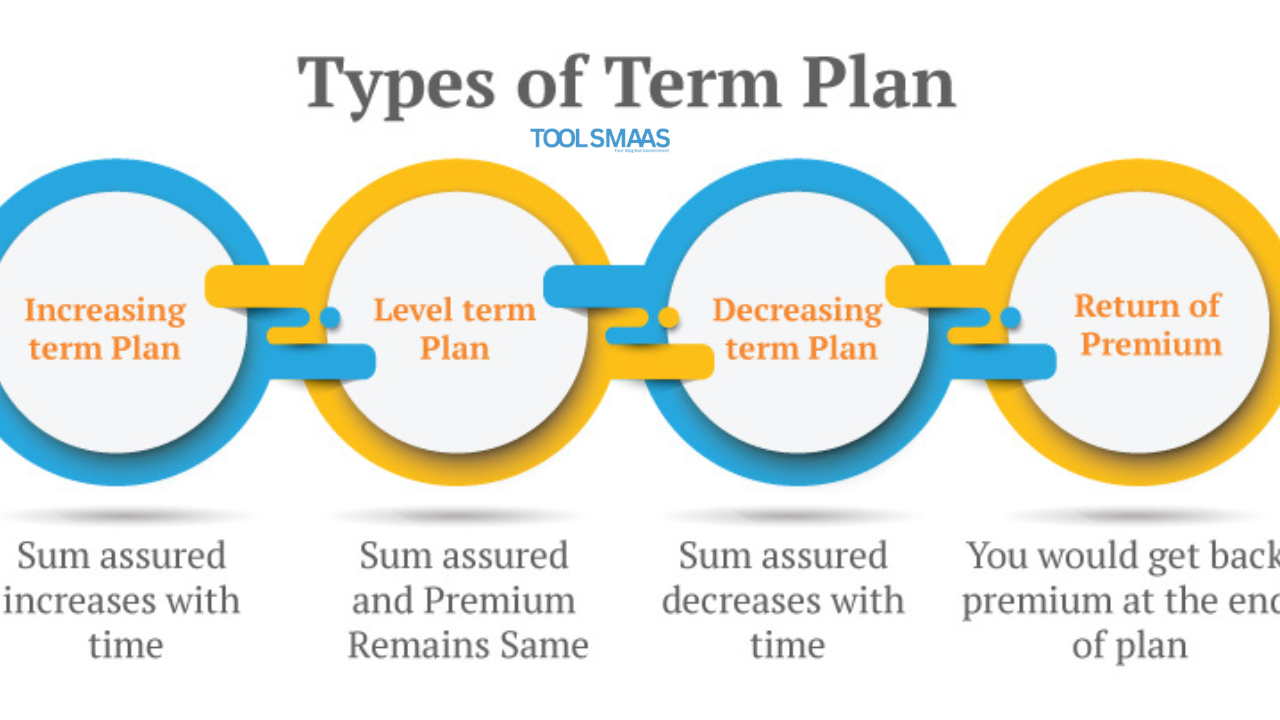Cheap Car Insurance. Car insurance is a contractual agreement between a vehicle owner and an insurance provider, wherein the insurer assumes financial responsibility for potential losses arising from road accidents, theft, or other related incidents. The primary purpose of car insurance is to mitigate financial risks and provide peace of mind to vehicle owners. In the UK, it is a legal requirement to have at least a basic level of car insurance before driving on public roads. This mandate aims to ensure that all drivers can cover the costs associated with accidents and damages.
There are several types of car insurance policies available in the UK:
Third Party Only (TPO): This is the minimum level of coverage required by law. TPO covers any damage or injury you cause to another person, vehicle, or property. However, it does not cover any damage to your own vehicle or personal injuries you might sustain in an accident.
Third Party, Fire and Theft (TPFT): In addition to the coverage provided by Third Party Only, TPFT policies also cover the cost of repairing or replacing your vehicle if it is damaged by fire or stolen. TPFT does not, however, include coverage for accidental damages to your own vehicle or your own medical expenses.
Comprehensive Cover: This is the highest level of car insurance coverage available. Comprehensive policies not only include the benefits of TPO and TPFT, but they also cover damages to your own vehicle resulting from accidents, vandalism, or other incidents, regardless of fault. Moreover, comprehensive policies often provide additional benefits, such as personal accident coverage and the option to insure valuable personal belongings kept in the vehicle.
Understanding these basic aspects of car insurance—the types of policies, their coverage, and legal requirements—can help UK drivers make informed decisions about the level of protection they need and how to find affordable options that meet their specific circumstances.
Factors Affecting Car Insurance Premiums

Car insurance premiums in the UK are determined by a multitude of factors, each contributing to the overall cost. Understanding these elements can help drivers find cheap car insurance more effectively.
Age and Driving Experience
One of the primary factors influencing car insurance premiums is the driver’s age and driving experience. Young drivers, particularly those under 25, often face higher premiums due to their statistically higher risk of being involved in accidents. On the other hand, experienced drivers with a clean driving record typically enjoy lower premiums. According to a study by the Association of British Insurers (ABI), premiums for young drivers can be as much as three times higher than those for older, more experienced motorists.
Vehicle Type
The type of vehicle also significantly affects insurance costs. High-performance cars or luxury vehicles are more expensive to insure due to their higher repair and replacement costs. Additionally, the risk of theft is greater for certain makes and models, which can further increase premiums. Conversely, smaller, less expensive cars, particularly those with advanced safety features, generally attract lower insurance costs.
Geographic Location
Where a driver lives plays a crucial role in determining insurance premiums. Urban areas with higher traffic congestion and crime rates typically see higher premiums compared to rural areas. Insurers analyze postcode data to assess the risk of accidents and theft, influencing the overall cost. For example, drivers in London often pay more than those in quieter regions like the Highlands.
Driving Record
A driver’s history on the road is another essential factor. Individuals with a history of accidents, traffic violations, or claims usually face higher premiums. Insurance companies view these drivers as higher risk. Conversely, a clean driving record can help secure lower premiums as it reflects responsible behavior.
Annual Mileage
The number of miles driven annually also impacts the cost of car insurance. Drivers with higher mileage are statistically more likely to be involved in accidents simply due to more time spent on the road. Therefore, reducing annual mileage can lead to cheaper insurance premiums. Insurers commonly categorize drivers into low, medium, and high mileage brackets when calculating premiums.
By comprehensively understanding these factors, drivers can better navigate their pricing options, ultimately finding more affordable car insurance. Each element plays a critical role, and making adjustments where possible can lead to significant savings.“`html
Ways to Lower Your Car Insurance Premiums

Securing affordable car insurance can be challenging, but several strategies can help you reduce your premiums. Comparing quotes from different insurers is the first step—rates can vary significantly, so it’s worth dedicating time to research. Utilizing price comparison websites or seeking assistance from an insurance broker can streamline this process and ensure you find competitive rates.
Another method to lower your car insurance premiums is by increasing the voluntary excess on your policy. The excess is the amount you agree to pay toward a claim before your insurer covers the rest. While a higher voluntary excess means you’ll pay more out-of-pocket in the event of an accident, it typically results in reduced premiums because it lowers the insurer’s risk.
Improving your vehicle’s security can also make a notable difference. Installing approved alarms, immobilizers, and tracking devices reduces the likelihood of theft or vandalism, making your car less risky to insure. Some insurers may offer discounts if you take these measures, recognizing the enhanced security.
Consider enrolling in a defensive driving course. These courses are designed to improve your driving skills and safety awareness, reducing the likelihood of accidents. Insurers often view graduates of such courses favorably, sometimes offering lower premiums as a reflection of the reduced risk associated with safer driving habits.
Telematics, or black box insurance, can provide substantial savings, particularly for younger drivers. This type of insurance involves installing a device in your car that monitors your driving habits, such as speed, braking, and overall driving behavior. Insurers use this data to tailor your premium based on how safely you drive. Consistently safe driving can lead to significant discounts over time.
By implementing these strategies, you can effectively manage and reduce your car insurance costs, ensuring you find a policy that offers both comprehensive coverage and affordability.“`
Comparing Insurance Providers

When seeking affordable car insurance in the UK, an essential step is to effectively compare different insurance providers and their policies. This process can seem overwhelming, but breaking it down into manageable steps can make it more straightforward.
First and foremost, utilize comparison websites. These platforms aggregate information from multiple insurers, providing an at-a-glance comparison of premiums and coverages. Popular sites like Compare the Market, MoneySuperMarket, and Confused.com can be incredibly useful. However, remember not all insurers list their policies on comparison sites, so it’s worthwhile to visit insurers’ websites directly for a comprehensive view.
Another critical step is to read customer reviews. Websites like Trustpilot and Feefo offer insights into the experiences of actual customers, highlighting both positive aspects and potential pitfalls of various providers. While reviews are subjective, they can indicate trends in customer satisfaction and service quality that are well worth considering.
Understanding policy inclusions and exclusions is paramount. Policy documents may contain jargon and fine print that can obscure essential details about what’s covered and what’s not. Pay special attention to sections detailing coverage limits, excess fees, and optional add-ons. This diligence ensures that you won’t encounter unexpected surprises in the event of a claim.
The presence of hidden fees can also significantly impact the overall cost of car insurance. These might include administration fees for mid-term adjustments, cancellation charges, or higher premiums for monthly payment plans. Always scrutinize the terms and conditions to identify any additional costs that might affect the affordability of a policy.
Lastly, while cost is an important factor, it shouldn’t be the sole criterion for selecting car insurance. The quality of coverage, like the extent of personal injury protection or the availability of courtesy cars during repairs, often justifies a higher premium. Balancing cost with coverage quality ensures you receive a policy that offers real value, providing peace of mind and comprehensive protection.
Exploiting Discounts and Special Offers

When seeking affordable car insurance in the UK, it’s essential to explore the multitude of discounts and special offers available across various insurance providers. Such discounts can significantly reduce the cost of your premiums, allowing you to save money while still securing comprehensive coverage.
A popular discount is the multi-car discount, which offers savings for insuring more than one vehicle with the same company. Families or households with multiple cars can benefit substantially from this offer. The insurance provider usually assesses the overall risk for each vehicle and offers a collective discount that lowers the combined premium cost. To qualify, ensure to list all vehicles during the insurance application process.
An equally valuable offer is the no-claims bonus. This reward is granted to drivers who have not made any insurance claims over a designated period, usually one year. The no-claims bonus increases cumulatively with each consecutive year of claim-free driving, translating into considerable reductions in premium costs in subsequent years. To retain this bonus, consider adding a no-claims discount protection to your policy, which safeguards the bonus even if a single claim is made.
Loyalty rewards are another avenue for savings. Many insurance providers offer discounts to long-term customers. Although switching providers might seem enticing due to introductory offers, staying with the same insurer can yield considerable benefits over time through loyalty discounts. These can be in the form of lowered premiums or additional services at no extra cost.
Additionally, certain professions might enjoy specific discounts due to perceived lower risk profiles. Professions such as teaching, engineering, and healthcare are often favored. It’s worth checking with the insurance provider whether your profession qualifies for such discounts, as this can lead to significant savings.
Understanding these discounts and special offers can empower you to reduce your car insurance premiums effectively. Always inquire about the available discounts when comparing insurance policies, and ensure that you meet the eligibility criteria to maximize savings on your car insurance.
The Role of Payment Plans

Understanding the payment plans available for car insurance can significantly influence the overall cost. In the UK, insurers typically offer two primary payment options: annual and monthly payments. Each of these plans has distinct advantages and drawbacks, which should be carefully weighed to find the most suitable option for your financial situation.
Paying annually is often regarded as the most cost-effective method. By opting to pay for your insurance in a lump sum, you usually avoid extra charges that come with spreading the cost over the year. Insurers generally provide a lower premium when the policyholder commits to an annual payment. This can result in substantial savings over time. Moreover, paying annually eliminates the risks associated with missing monthly payments, which can lead to penalties or even the cancellation of your policy.
On the other hand, monthly payment plans can offer greater flexibility for those who find it challenging to produce a lump sum. However, this convenience typically comes with added interest rates. Insurers often include interest to adjust for the risk and administrative cost of generating multiple smaller transactions rather than a single annual payment. Consequently, the overall cost of the premium is higher when paid monthly. It’s also important to be aware of potential additional charges that can accrue with a monthly payment plan, such as installment fees, which can further increase the total expenditure.
Timely payments play a critical role in maintaining the cost-effectiveness of a monthly plan. Missing payments can not only attract additional charges but may also adversely affect your credit score, leading to increased insurance premiums in the long term.
To make an informed decision, consider your financial situation and ability to manage large sums versus smaller, more frequent payments. If cash flow permits, annual payments are generally more cost-efficient. However, if budgeting for a large annual payment is challenging, a monthly plan might still be manageable with careful planning. Always assess the overall cost implication, factoring in the potential interest rates and additional fees, to choose the plan that best suits your financial circumstances.
Reading and Understanding Policy Terms

When navigating the diverse landscape of car insurance policies in the UK, it is paramount to fully comprehend the terms and conditions associated with any prospective cover. Understanding your policy’s key terminology, crucial clauses, and typical exclusions can spell the difference between a successful claim and an unexpected denial.
Firstly, familiarize yourself with critical terminology that frequently appears in car insurance policies. Terms such as “excess,” which refers to the amount you are required to pay towards any claim, or “no-claims discount,” which offers a reduction in your premium for each year you do not make a claim, are essential. Other important phrases include “third-party cover,” which protects against damage to others, and “comprehensive cover,” which offers more extensive protection for your own vehicle as well.
Next, scrutinize the key clauses within the policy. One of the most significant is the “exclusions” clause. Common exclusions — such as driving under the influence, the use of your car for commercial purposes, or allowing an unlisted driver to operate your vehicle—may render your policy invalid in specific situations. Identifying these exclusions beforehand allows you to modify your behavior and circumstances to remain in compliance and ensure coverage.
It is also advisable to pay attention to the “claims process” section of your policy. Understanding the exact steps required to initiate a claim, including necessary documentation and timeframes, will streamline the process during the stressful period following an incident. Missteps in adhering to these stipulated procedures can result in delayed or denied claims.
Thoroughly reading and understanding the policy from cover to cover ensures awareness of your rights and responsibilities as a policyholder. By doing so, you shield yourself from unwelcome surprises that could arise from any overlooked details. Ultimately, informed comprehension is instrumental in securing the best value from your car insurance policy and safeguarding your financial and legal interests.
Dealing with Claims and Customer Service

When it comes to making a car insurance claim, understanding the process can significantly alleviate the stress involved. The first crucial step is to report the incident to your insurance provider as quickly as possible. This initial report should include detailed information about the incident, such as the date, time, location, and parties involved. It’s also helpful to provide photographic evidence, if available, to support your claim.
Following the initial report, your insurer will typically assign a claims adjuster to assess the situation. The adjuster will review the details of the incident, including any supporting evidence, and determine the extent of the damage and the compensation you are entitled to. It’s essential to stay in regular contact with your claims adjuster and provide any additional information they might request promptly.
While the steps involved in processing a claim are relatively standard across different insurers, the quality of customer service can vary widely. Good customer service can make a significant difference, especially in stressful situations. Look for insurers that are known for their responsive and helpful customer service teams. Reading customer reviews and seeking opiniosn from friends and family can offer valuable insights into an insurer’s performance. Consider also their ratings on customer service platforms and the overall claims resolution time they are known for.
One effective way to gauge the quality of customer service is by examining the insurer’s communication during the claims process. Are they transparent about the steps involved? Do they provide regular updates? Is it easy to reach a representative when you have questions or concerns? Insurers that excel in these areas can provide a smoother and less frustrating claims experience.
Therefore, when choosing cheap car insurance in the UK, it is not only the price that matters but also the quality of customer service. A provider with excellent customer service can enhance your overall experience, ensuring that your claim is handled efficiently and effectively when the need arises.







